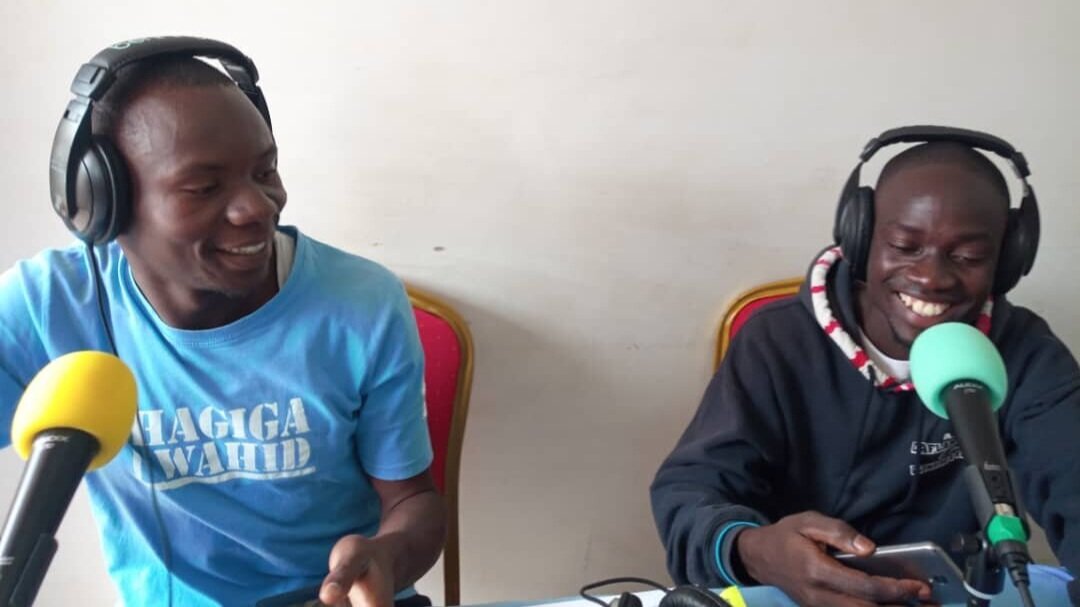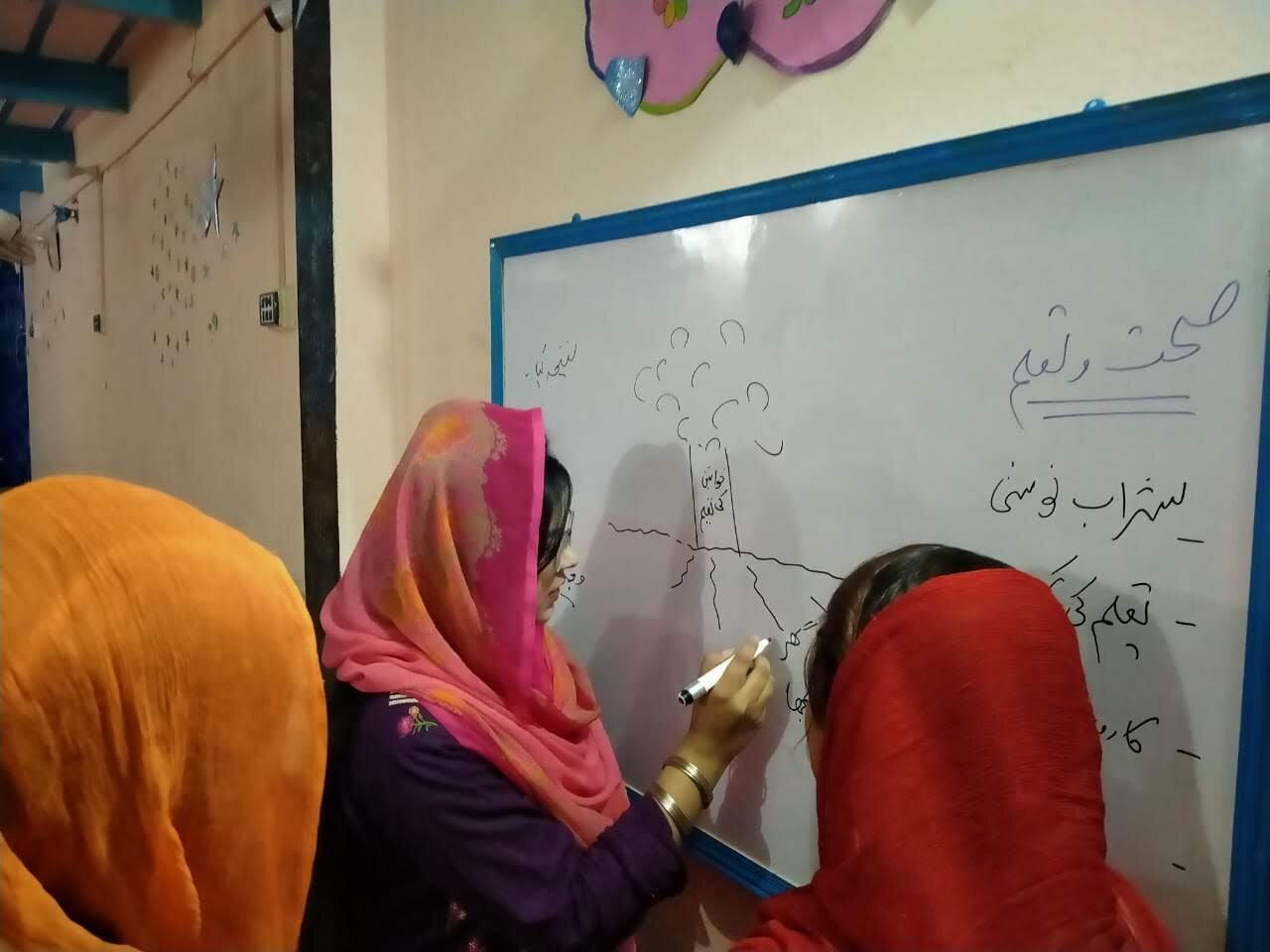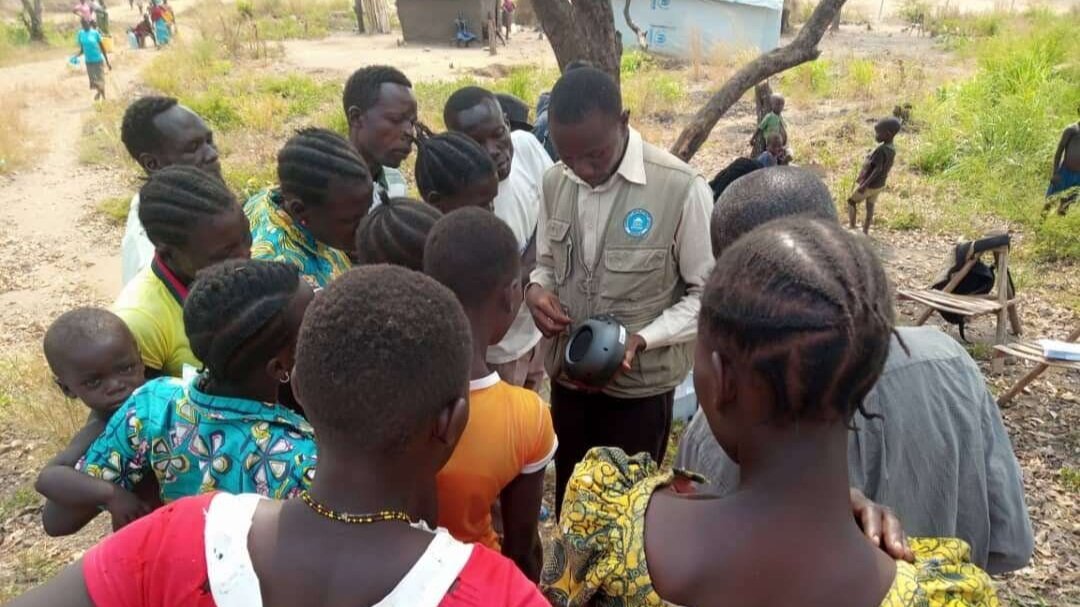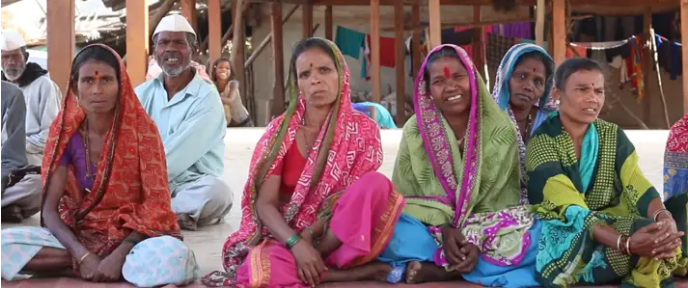by Johnny Fisher
Photo Credit: John Green Photography 2019
In the last week of September I joined a great group of people for a workshop near Arua, Uganda. Some of the group are South Sudanese refugees and others are Ugandans. They have a plan to work together on a media project to improve community health, education and social cohesion in northern Uganda.
We facilitated a community consultation and media training workshop in Rhino Camp, Omugo extension zone.
This is the pre-launch phase of a community-centred media pilot called Soot Semee (Voice of Compassion in Juba Arabic). Over the next six months HCR and our local partners are supporting new arrivals from South Sudan in Omugo zone to create audio podcasts in collaboration with service providers and host communities. Would you consider donating to support this pilot process?
Community members can listen to the podcasts using ‘Speakerboxes’ and memory cards (micro SD cards) distributed by our partner CDC (Community Development Centre).
Those who have mobile phones will also be able to transfer the programmes from phone to phone using Bluetooth. Others will hear segments of the programmes played alongside music on marketplace loudspeaker.
Media podcasts can be heard via Speakerbox or on Phones: Photo credit: John Green Photography, 2019
CDC is our newest partner. CDC’s Barnabas Samuel and Sebit Martin, invited HCR to join them in their mission to mitigate poverty, to empower vulnerable community members and to promote unity between refugee communities, service providers and host communities. In South Sudan, CDC operated a community radio station. Now registered as an NGO in Uganda, CDC engages with communities to promote sexual and reproductive health and tackle misinformation.
In partnership with the Sentinel Project, CDC uses a well researched mobile phone based platform, Hagiga Wahid and a host of ‘community ambassadors’ to track rumours and provide feedback to communities.
The Soot Semee project will complement the Hagiga Wahid tool.
Community journalism and audio production activities give new opportunities to hear about rumours and to disseminate findings about rumours that have been checked.
Photo Credit: Barnabas Samuel, 2019
In Omugo sub-county, northern Uganda, South Sudanese refugees and Ugandans live alongside each other. The Ugandan hosts have given land and other resources to South Sudanese refugees fleeing the conflict in South Sudan. This puts pressure on infrastructure, on health and educational resources, and on natural resources such as firewood. Remoteness from urban centres creates an environment where rumours can flourish and give rise to conflict purely through misinformation or misunderstanding. Neither the refugee communities nor the host community want that. They are determined to work together to bring mutually beneficial development in Omugo.
By engaging community members from all parts of the community in making audio podcasts, Soot Semee content will be highly relevant and build confidence even among the most vulnerable. Familiar voices will be an attraction for community producers and for listeners.
Listening to community voices in Omugo zone, Uganda. HCR, 2019
Refugees and host community members will be more aware of each other’s concerns.
Service providers provide access to critical health and educational information, but the community-centred approach positions the health and educational experts as trusted guests of the community rather than imposing untrusted solutions.
We want to do more than preventing conflict. I heard harrowing stories from people who have fled South Sudan: rape, inter-tribal killing, extra-judicial executions.
The escape to Uganda is fraught with risk. Refugees didn’t know if they would get past the next roadblock, and even if they survived they might do so as witness to atrocities on other travelers.
Many people are traumatised. We hope that the project will help people to start to heal from the psychological and emotional wounds caused by previous conflict. Some of the service providers, who have agreed to partner with Soot Semee, have skills in trauma healing. Community-centred media is a powerful tool for promoting trust and social dialogue. A trust-based partnership between community and service provider is an ideal environment for trauma healing.
HCR believes the time is right for this project, that it will saves lives and transform others. Barnabas Samuel from CDC told me his expectation: those most in need of information will hold these speakerboxes, and say:
“For me, this is life!”.
HCR is funding most of the pilot activities from general funds but we would love to hear from supporters who can help us complete this 6 month pilot successfully, to evaluate it effectively and to work with CDC and Omugo communities to develop sustainable, transformative community engagement for the longer term. Please Donate here or you can Contact Us if you prefer to receive a funding proposal.













